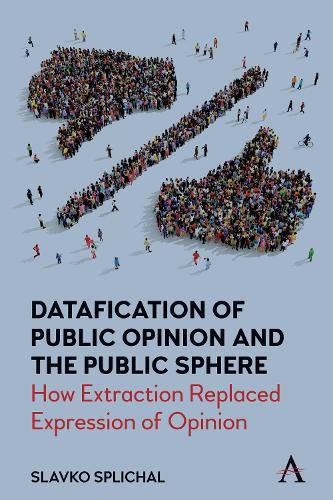Readings Newsletter
Become a Readings Member to make your shopping experience even easier.
Sign in or sign up for free!
You’re not far away from qualifying for FREE standard shipping within Australia
You’ve qualified for FREE standard shipping within Australia
The cart is loading…






The book, anchored in stimulating debates about the enlightenment ideas of publicness, analyses historical changes in the core phenomena of publicness: possibilities, conditions and obstacles to developing a public sphere in which public create, articulate and express public opinion by means of reflexive publicity within an established democratic public culture. Specifically, it is focused on three central topics:
a general historical transformation from opining - essentially some people’s view of what the public thought - through the identification of public opinion in opinion polls, up to the contemporary establishment of what people think/want using computer-based analysis of the big data available from digital records, in which the enlightenment idea of public expression of opinion has been replaced by the technology of extracting opinions;
the origins and consequences, and the similarities and differences of the rise and fall of two related concepts - public opinion and the public sphere - in historically particular periods, which have in common that they both lie in the boundary area between normative-theoretical and empirical orientation and suffer from unreliable definition and operationalization, which can only be resolved by a closer connection between the two concepts and areas. a specific historical intervention created by the domestication of the German concept OEffenntlichkeit in English as the public sphere, heralding a new critical impetus in theory and research of publicness at a time when critical social thought sharply criticised and even abandoned the notion of public opinion due to its predominantly administrative use.
$9.00 standard shipping within Australia
FREE standard shipping within Australia for orders over $100.00
Express & International shipping calculated at checkout
The book, anchored in stimulating debates about the enlightenment ideas of publicness, analyses historical changes in the core phenomena of publicness: possibilities, conditions and obstacles to developing a public sphere in which public create, articulate and express public opinion by means of reflexive publicity within an established democratic public culture. Specifically, it is focused on three central topics:
a general historical transformation from opining - essentially some people’s view of what the public thought - through the identification of public opinion in opinion polls, up to the contemporary establishment of what people think/want using computer-based analysis of the big data available from digital records, in which the enlightenment idea of public expression of opinion has been replaced by the technology of extracting opinions;
the origins and consequences, and the similarities and differences of the rise and fall of two related concepts - public opinion and the public sphere - in historically particular periods, which have in common that they both lie in the boundary area between normative-theoretical and empirical orientation and suffer from unreliable definition and operationalization, which can only be resolved by a closer connection between the two concepts and areas. a specific historical intervention created by the domestication of the German concept OEffenntlichkeit in English as the public sphere, heralding a new critical impetus in theory and research of publicness at a time when critical social thought sharply criticised and even abandoned the notion of public opinion due to its predominantly administrative use.